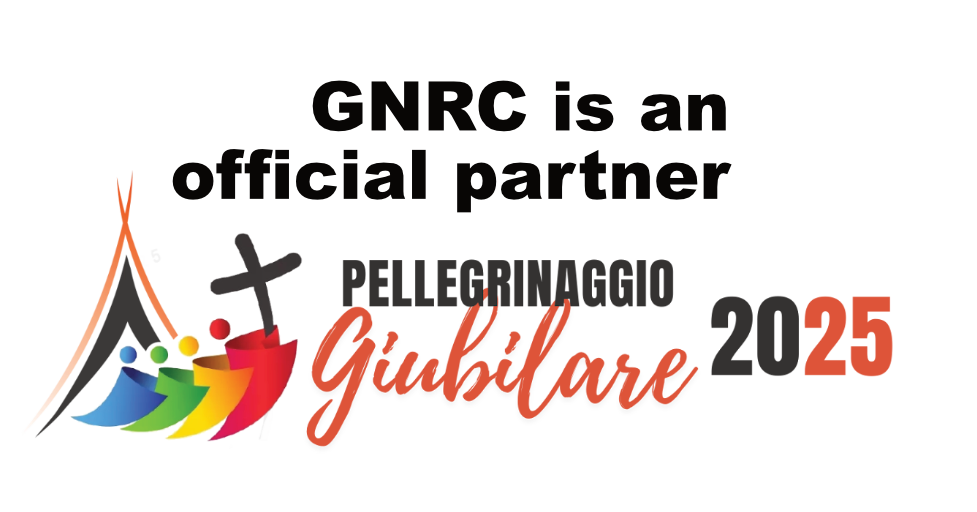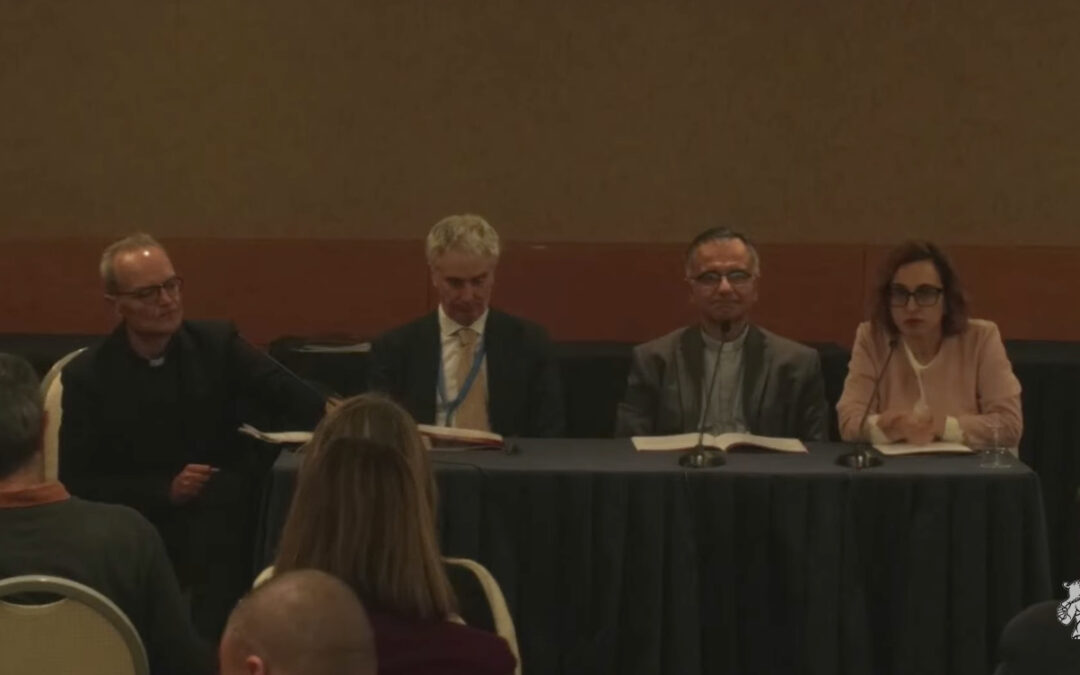“Leaven of Peace and Fraternity”: the Italian Church closes its Synodal Path with a call to dialogue and shared responsibility
Rome, 26 October 2025 — Source: CEI press conference
After four years of consultation involving over 500,000 people, 50,000 local groups, and 400 diocesan delegates, the Italian Church has approved its synthesis document Leaven of Peace and Fraternity.
“An unprecedented experience for the Church in Italy”
Archbishop Erio Castellucci, President of the National Committee of the Synodal Path, opened the press conference expressing gratitude:
“A sense of gratitude, gratitude for the people who participated and took on the effort to listen, collect, and work — even for those who disagreed. It has been a great experience, I think unprecedented for the Italian Church, engaging so many people on one theme: how to be a missionary and synodal Church today, here in Italy.”
He recalled Pope Francis’ words about the end of Christendom:
“When Pope Francis in Florence spoke of a change of epoch — it is not a change of epoch, but an epoch of change. He referred to the sunset of Christendom: we are no longer the majority, we no longer count as much, we are one of the voices, not even the most listened to.”
“This could have led to a sort of pastoral depression or, in some ultra-fundamentalist circles, to nostalgia for past forms… but this was very marginal in the synodal journey. Our communities, despite fatigue and hesitation, have tried to ask: what is the Spirit asking of us today?”
Three pastoral priorities
Castellucci summarized the document’s three key directions:
“It is not a doctrinal document. Doctrinal proposals were sent to the Holy See.
Within the missionary Church we identified three priorities:
– Co-responsibility, renewing participatory bodies, promoting shared leadership, recognizing the role of women, and broadening ministries beyond the altar to presence in society;
– Formation, because it is difficult to be co-responsible without a shared knowledge of the Gospel;
– and Peace, with proposals on education, disarmament, and civic responsibility.”
“Pope Francis urged us to make our Christian communities places of education for peace, houses of peace.”
“Out of the pastoral categories”
Mons. Luigi Bulgarelli, Secretary of the Committee, highlighted the structural renewal:
“From the very beginning, the effort was to walk together… not to waste what had been heard. The first novelty is to get out of the so-called ‘pastoral of categories’ — doing something for the youth, something for families — and instead to adopt a common horizon: community, formation, co-responsibility.”
He also reported the wide consensus:
“Out of about 850 voters, the general votes showed over 90% approval. This is a reason for satisfaction.”
“It was an exercise in transparency: the more we try to be transparent, the more we realize how many distorted readings exist. So we will continue sharing and clarifying.”
LGBT+ themes and inclusion
Answering a question from la Repubblica about the paragraphs concerning violence and discrimination — including towards homosexual and transgender people — Castellucci explained:
“That section was misunderstood. Some thought the CEI was endorsing Gay Pride events, but it refers instead to days the Church already joins in its own way: through prayer and reflection. For example, the day against pedophilia, initiatives against femicide, and prayer vigils against homotransphobia. These are not openings to any kind of manifestation, though that interpretation circulated widely online.”
On moral development and accompaniment, he said:
“Morality is not static; it must take shape from the situation, from the progress of knowledge, and above all from the faces and conditions of people.”
“Pope Francis helped us look differently at divorced and remarried couples. He asked us to accompany everyone… accompany, discern, integrate. And this applies to all, including people with same-sex affection.”
“People are never categories, but persons with complex situations. He has closed no doors.”
Shared governance and parish councils
“If the CEI accepts that proposal, it could make pastoral councils mandatory at least at diocesan level, since canon 536 currently only recommends them. It would be a sign of greater co-responsibility.”
“Consultative and deliberative aspects must be more closely linked. Many dioceses have already asked for guidance on this — councils have existed on paper for forty years, but a real turning point is now needed.”
Transparency and method
“We decided to publish everything. There is no point in hiding it — some website would leak it anyway. We have matured a process of transparency, releasing the text and now the voting results.”
“The less transparent we are, the more we see distorted interpretations, so we will keep working on openness and clarity.”
Women, ministries, and social justice
“Regarding the female diaconate, I honestly do not fully understand the votes against. I am also sorry for the rejection of fair remuneration — it would have been a real step forward, though always respecting the spirit of gratuity in our Churches.”
“There is a certain allergy to ministries, perhaps for fear of clericalism, but these are outward-lookingministries, aimed at people in need.”
Disarmament and financial ethics
“Paragraph 24 calls for local Churches to support initiatives for divestment from banks involved in arms production and trade, for the banning of nuclear arsenals, and for conscientious objection by those refusing to use their skills for the weapons industry.”
“778 delegates out of 850 voted in favour.”
“Pope Francis has been insisting on this from the start, though we are still unheard.”
Implementation and next steps
“We expect the Bishops’ Conference to do its part, take ownership of this text, and start making concrete decisions.”
“Two upcoming assemblies — in November and in May — will focus on this document: the first to decide what can begin immediately, the second for possible guidelines.”
“In the 1970s pastoral guidelines were written by experts. Today, following Pope Francis, the first half of the decade was devoted to listening to everyone, and the second will be the time of reception. Listening built on listening.”
Speakers
The press conference featured the three main members of the National Committee of the Italian Synodal Path:
-
Archbishop Erio Castellucci, Archbishop of Modena-Nonantola and Carpi, Vice-President of the CEI — main speaker on openness, moral reflection, and pastoral direction.
-
Mons. Luigi (Pierpaolo) Bulgarelli, Undersecretary General of the CEI — focused on process, transparency, and statistical results.
-
Prof. Pierpaolo Triani, Professor of Pedagogy, Università Cattolica del Sacro Cuore — described the drafting and amendment process involving all dioceses.
Moderation was by a CEI official. Journalists who intervened publicly:
Iacopo Scaramuzzi (la Repubblica), Giacomo Gambassi (Avvenire), and Vittoria Prisciandaro (Periodici San Paolo).


